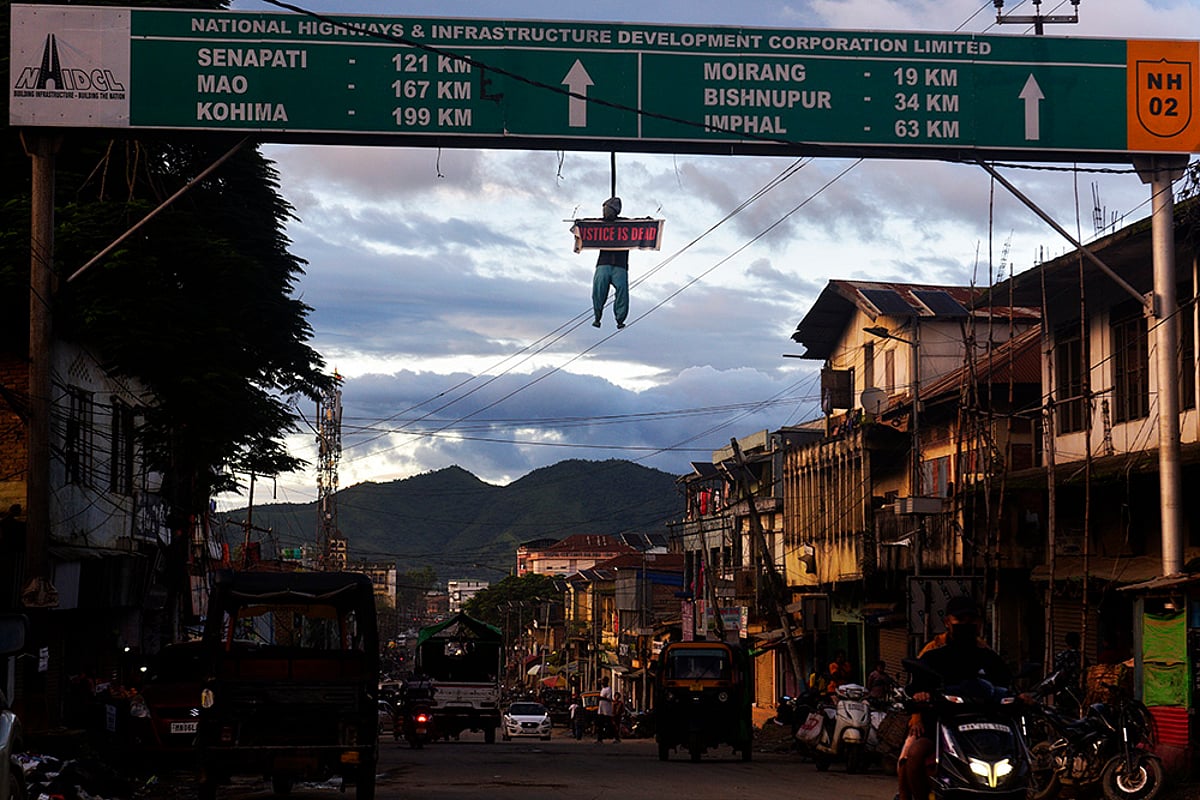“Justice Is Dead”, reads a poster in the hands of an effigy that greets visitors entering the Kuki-Zo dominated Churachandpur district of Manipur.

A poster declaring “Separation Only Solution” along with a Zomi flag in Churachandpur where Kuki-Zo communities have demanded a separate administration following last year’s ethnic clashes.

Members of tribal civil body Kuki Students Organisation (KSO) stand in front of a “wall of remembrance” outside the KSO office in Kangpokpi to commemorate the Kuki-Zo victims who lost their lives in the ethnic clashes with Meiteis that erupted in May last year.

A 19-year-old gang-rape survivor awaits justice in Kangpokpi. She was allegedly kidnapped from an ATM on May 4, 2024, beaten by a mob and later sexually assaulted before she managed to escape. No one has yet been arrested.

Growing demand for separate administration for hill regions among Kuki-Zo communities in Churachandpur.

A shop formerly owned by a Kuki in an Imphal East market which was torched by Meitei mobs during ethnic clashes in the first week of May last year.

The displaced family of a Kuki woman and her eight year old son, burned alive in an ambulance along with a Meitei woman last year, await justice.

Multi’-coloured Kangleipak’ flags representing the old kingdom of Manipur being sold on streets of Imphal, which has seen a revival of indigenous Meitei nationalism and religion since the conflict.

With hill and valley divided on ethnic lines, locals in hill regions claim that “separate administration” is the only way forward for both the communities.

Ima Ngambi, one of the 12 Manipur mothers belonging to Meira Paibi (a civil society group of Meitei women), who stripped naked in 2004 in protest after the allege rape and murder of Thangjam Manorama in Imphal East. Hailed as peacekeepers of Manipur, the Meira Paibi have been named as perpetrators and facilitators of violence against Kuki-Zo women since clashes last year.

Violence against women has been a problem for decades in Manipur and the recent conflict once again highlighted the vulnerability of women as tools of war.

While several cases of violence and sexual violence against women from Kuki-Zo community were reported last year, investigations have remained slow.

Kuki-Zo women protesting in Torbung village against the recent decision to replace Assam Rifles troops from tribal-majority hill regions like Churachandpur and Kangpokpi with CRPF forces.




















